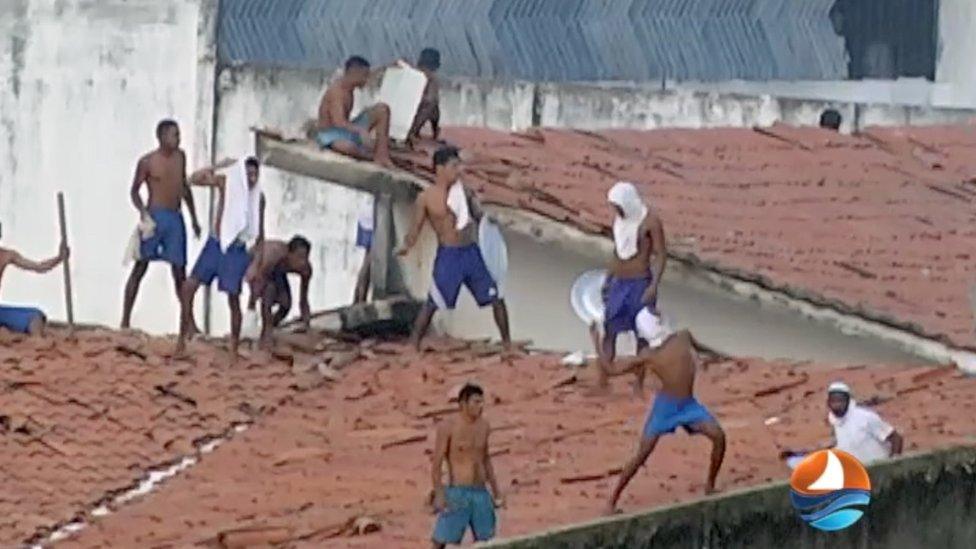Brazil prison violence: Gangs clash at jail where 26 died
- Published
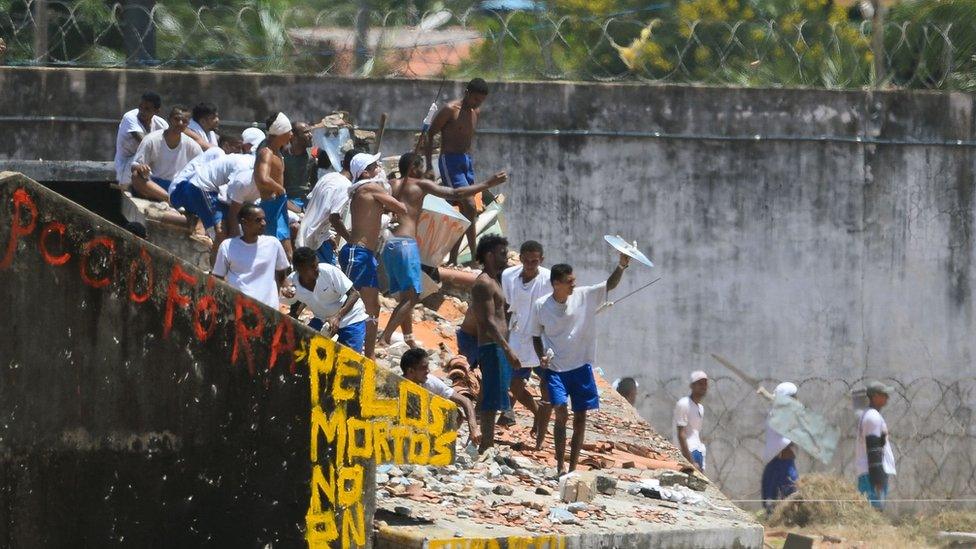
Gang members were being kept apart but clashed again on Thursday
Fresh violence has broken out in a Brazilian prison where 26 people died during gang clashes on Sunday.
Hundreds of inmates from rival gangs threw rocks at each other in Alcacuz Prison, only kept apart by police using tear gas and rubber bullets.
Authorities have struggled to regain control of the Natal city institution since Sunday's 14-hour riot.
On Wednesday, an estimated 220 inmates were moved to other jails in an attempt to put an end to the violence.
This is the latest round of violence to grip Brazil's overcrowded prisons. At least 134 prisoners have been killed since the start of the year, Fohla de Sao Paulo newspaper reported. A large number of those killed were decapitated.
Defence Minister Raul Jungmann described the situation as a "national emergency" as he announced the government was sending 1,000 troops in to "clean out" the prisons on Wednesday.
The soldiers will remove all arms, explosives and mobile phones from prisons across the country, but do not have the authority to take control of the prisons, Mr Jungmann said.
Video shows inmates on the roof of the prison
Most of the unrest that has gripped Brazil's overcrowded northern prisons is understood to stem from violence between the country's two largest gangs - the Sao Paulo-based First Capital Command (PCC) drug gang and Rio de Janeiro's Red Command.
Police were forced to break up further violence at Alcacuz on Tuesday, when the gangs clashed once more.
On Wednesday, one inmate at the Natal prison told the AFP news agency by telephone they wanted "those from the PCC to go to another state".
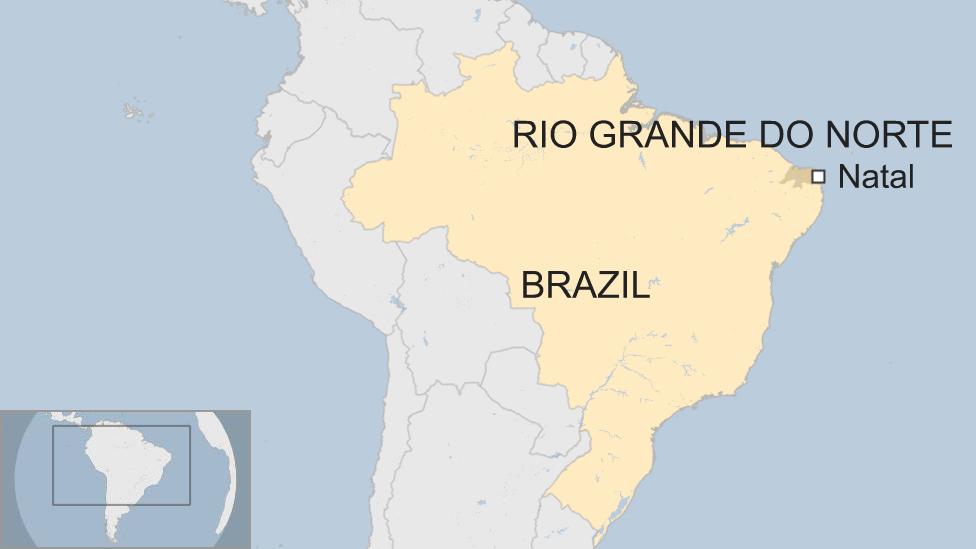
"We won't rest until (the authorities) take them away from here," he added.
Four buses were later seen removing members of one of the rival gangs, while another three buses appeared to be waiting to bring in people to fill the vacated cells.
However, relatives unhappy with the transfer attempted to block the road.
Thirteen buses were destroyed, apparently as part of the protest.
After the prisoners left, police special forces searched the cells and found firearms, a bullet-proof jacket and a large quantity of knives, Caio Bezerra, Natal's security chief, told reporters.
- Published16 January 2017
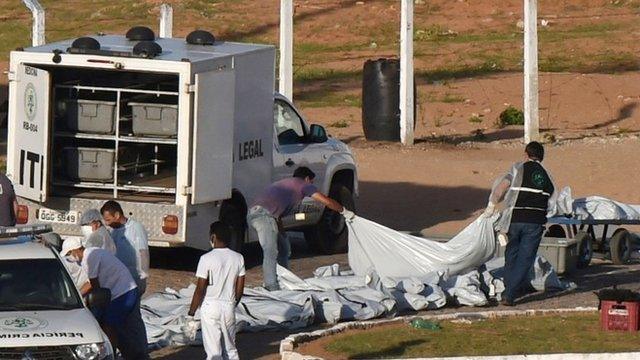
- Published11 January 2017
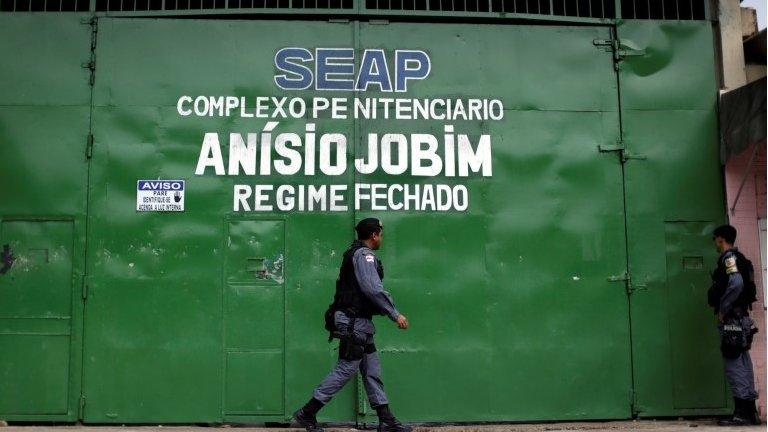
- Published15 January 2017
